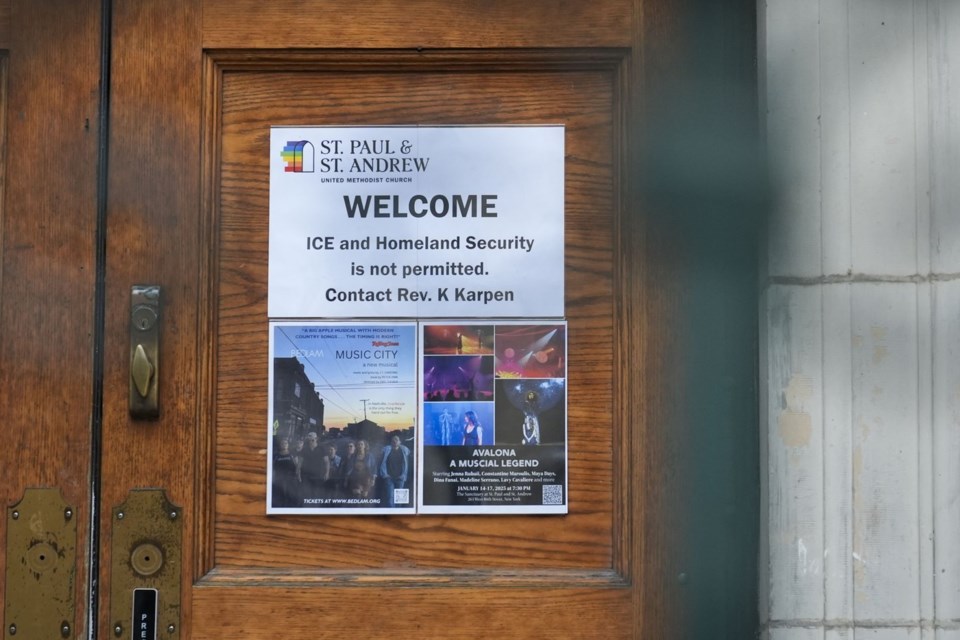WASHINGTON (AP) — Officers enforcing immigration laws will now be able to arrest migrants at sensitive locations like schools and churches after the Trump administration threw out policies limiting where those arrests could happen.
The move announced Tuesday reverses guidance that for over a decade has restricted two key federal immigration agencies — Immigration and Customs Enforcement and Customs and Border Protection — from carrying out immigration enforcement in sensitive locations.
“This action empowers the brave men and women in CBP and ICE to enforce our immigration laws and catch criminal aliens — including murderers and rapists — who have illegally come into our country. Criminals will no longer be able to hide in America’s schools and churches to avoid arrest," the Department of Homeland Security said in a statement Tuesday.
The ICE guidance dates back to 2011. Customs and Border Protection issued similar guidance in 2013.
Trump has made cracking down on immigration a top priority, just as he did during his first term in the White House from 2017 to 2021. On Monday he signed a slew of executive actions that included cutting off access to an app that facilitated the entry of hundreds of thousands of migrants; suspending the refugee system; and promoting greater cooperation between ICE and local and state governments.
He has often portrayed his efforts as unleashing the ability of ICE agents and others in immigration enforcement from Biden-era guidelines that he said restricted their efforts to find and remove people who no longer have the authority to remain in the country.
The announcement Tuesday had been expected as Trump works to deliver on his campaign promise to carry out mass deportations of anyone in the country illegally. But it was still jarring for advocates who have argued that raising the prospect of deportation at churches, schools or hospitals can prevent migrants from getting medical attention or allowing their children to attend school.
“This action could have devastating consequences for immigrant families and their children, including U.S. citizen children, deterring them from receiving medical attention, seeking out disaster relief, attending school, and carrying out everyday activities,” the Center for Law and Social Policy said in a statement.
“Should ICE presence near such locations become more common, the likelihood also increases that children could witness a parent’s detention, arrest, or other encounters with ICE agents," the organization said.
Rebecca Santana, The Associated Press



